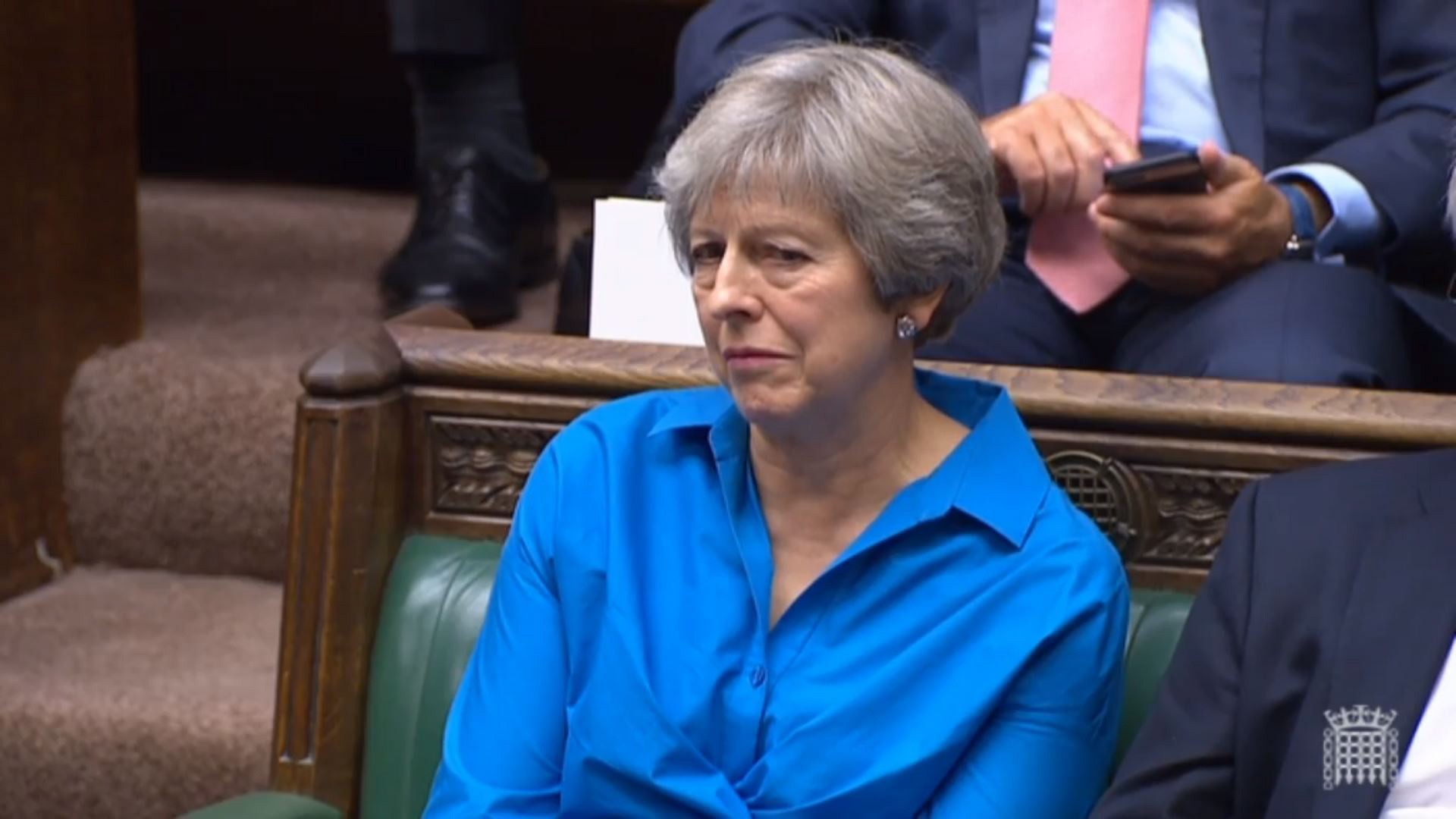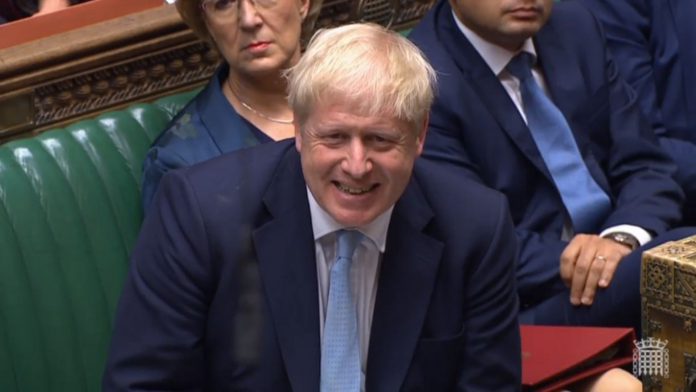BORIS Johnson tried once again to get a vote on his Brexit deal through parliament yesterday.
Here’s the latest on leaving the EU and whether it could still happen on October 31.
What is Brexit and when is it happening?
Britain voted to leave the EU in a referendum held on June 23, 2016.
However, the result of the vote only became legally binding through a piece of legislation called Article 50.
The bill was signed by then PM Theresa May and delivered to the European Council President on March 29, 2017.
This triggered a two-year exit process, with Britain bound to leave the EU by March 29, 2019.
However, MPs rejected May’s “meaningful vote” on three occasions, leading to May having to seek an extension from Europe.
Brussels granted a six-month extension, resulting in a new exit date of October 31, 2019.
The prospect of leaving on October 31 came to an end when Boris Johnson’s three-day timetable to push with Withdrawal Agreement through Parliament was rejected by MPs on October 22.
How has Brexit unfolded?
More than three years on, and it’s still unclear when Brexit will actually be delivered.
This timeline should give you an overview of how we’ve got to where we are right now.
2019
October
- Oct 31 – Brexit deadline day hopes now scuppered
- Oct 21-24– The European Parliament meets in Strasbourg for the last time, marking the departure of UK MEPs
- Oct 22 – Boris Johnson had a second chance to hold a vote on his deal. MPs backed the deal but wrecked it minutes later by rejecting his three-day timetable to push it through Parliament
- Oct 21 – The Speaker John Bercow blocked Mr Johnson’s bid to hold a Brexit vote on his Withdrawal Agreement Bill
- Oct 19 – On Super Saturday MPs backed Sir Oliver Letwin’s amendment, meaning Mr Johnson had to write to the EU to request a three-month extension
- Oct 17-18 – Negotiators from the UK and the EU agree a Brexit deal. EU leaders meet with Boris Johnson to address departure terms at a two-day summit
- Oct 4 – It emerged Johnson would sent a letter to the EU asking for a Brexit delay if no deal is agreed by Oct 19
- Oct 2 – Boris Johnson sets out new five-point plan to leave the EU, which would create a second border between Ireland and NI
September
- Sept 29 – Oct 2 – Conservative Party conference
- Sept 25 – Extraordinary debate in the Commons in which Boris Johnson is accused of ‘inciting hatred’
- Sept 24 – Supreme Court finds Boris Johnson’s five week suspension of Parliament broke the law
- Sept 10– Johnson is defeated by Labour abstainers whoblocked his bid to hold a general election for a second time
- Sept 9–MPs vote on a general election,start of Johnson’s suspension of Parliament andSpeaker John Bercow quits
- Sept 7–Amber Rudd resignsafter the PM kicked out Remainer Tory rebels
- Sept 4– The PMsacks 21 Tory MPsafter voting to block a No Deal
- Sept 3– MPs to introduce legislation aimed at blockingNo Deal Brexitwith rebel Tories joining Labour
August
- August 28– Queen approves suspension of Parliament for up to five weeks in a process known as proroguing
July
- July 23–Boris Johnsonis named the new PM
- July 22–Sir Alan Duncanquit as a Foreign Office minister in protest against a possible Boris Johnson victory
- July 9– Labour announce they willofficially back Remainin a second Brexit referendum
June
- June 22– Tory party members vote between last two in a postal ballot
- June 7–May stepped downas party leader. She is leaving her position as Prime Ministerwithout having delivered Brexit
May
- May 26 – European Elections results: theBrexit Partywon 29 seats,Labourhad 10 and theTories had a dismal four
- May 24 – Theresa May PM resigns
March
- March 29 – On the date the UK was expected to leave the EU, the PM loses Meaningful Vote 3
- March 21 – EU27 leaders agree to delay Brexit
- March 14 – MPs approve motion to seek permission from the EU to extend Article 50
- March 13– MPs vote to to rule out a No Deal Brexit.
- March 12 – PM loses Meaningful Vote 2
February
- Feb 26 – PM promises MPs a vote on ruling out a no-deal Brexit or delaying Brexit if she loses the second meaningful vote next month
- Feb 14 – Brexit plans defeated in the House of Commons
January
- Jan 21 – May presents ‘Plan B’ Brexit deal.
- Jan 16 – May clings onto power, winning the vote of no confidence.
- Jan 15 – Government suffers huge defeat, losing the Meaningful Vote by a majority of 230. Opposition tables a vote of no confidence in the Government, to be held the next day.

2018
- Dec 11 – May survives a vote of no confidence in her leadership of the Conservatives
- Dec 10 – May pulls planned final vote on Brexit deal
- Dec 4 – MPs begin five days of debates ahead of ‘Meaningful Vote’ debate on December 11
- Nov 24 – EU27 leader endorse Withdrawal Agreement and approve the declaration on future EU-UK relations
- Nov 15 – Now Dominic Raab resigns as Brexit sec, is replaced by Stephen Barclay the next day
- Nov 14 – Withdrawal agreement is agreed and published
- Aug 23 – Gov publishes first collection of technical notices on how to prepare for a No Deal Brexit
- July 6 – The now infamous ‘Chequers plan’ is deeply unpopular with Tory big guns. Davis resigns as Brexit sec, replaced by Dominic Raab.
- June 26 – The EU Withdrawal Bill receives Royal Assent and becomes an Act of Parliament.
- June 6 – Brexit sec David Davis accuses the EU of shooting itself in the foot to see if the gun works, in planning to weaken security ties with the UK after Brexit.
- May 16 – The EU (Withdrawal) Bill finishes its House of Lords stages and goes into parliamentary ping pong
- Jan 18 – The EU (Withdrawal) Bill has its First Reading in the House of Lords.
2017
- Nov 13 – The Gov announces new Bill to enshrine Withdrawal Agreement between the UK and the EU in domestic law
- Nov 7 – The Government set out further details of how its new settled status scheme for EU citizens will work
- Oct 9 – Fifth round of negotiations begins in Brussels
- Sept 23 – PM delivers key Brexit speech in Florence
- July 14 – Second round of EU exit negotiations begin
- June 19 – First round of UK-EU exit negotiations begin
- June 8 – General Election results in a hung Parliament, Tories win most seats
- April 17 – PM calls for a General Election for June 8, 2017
- March 29 – Article 50 is signed, setting a two-year exit from the EU in motion.
- Jan 24 – Supreme Court rejects Gov’s appeal against the Nov ’16 High Court ruling
2016
- Nov 3 – The High Court rules in favour of complainant Gina Miller, saying the gov cannot use prerogative powers to give the notice required by Article 50 to withdraw from the EU
- July 13 – Theresa May becomes the new PM
- June 24 – David Cameron PM resigns
- June 23 – Britain votes to leave the EU (51.9% of the vote versus 48.1% voting to remain). The question asked was: “Should the United Kingdom
remain a member of the European Union or leave the European Union?”








